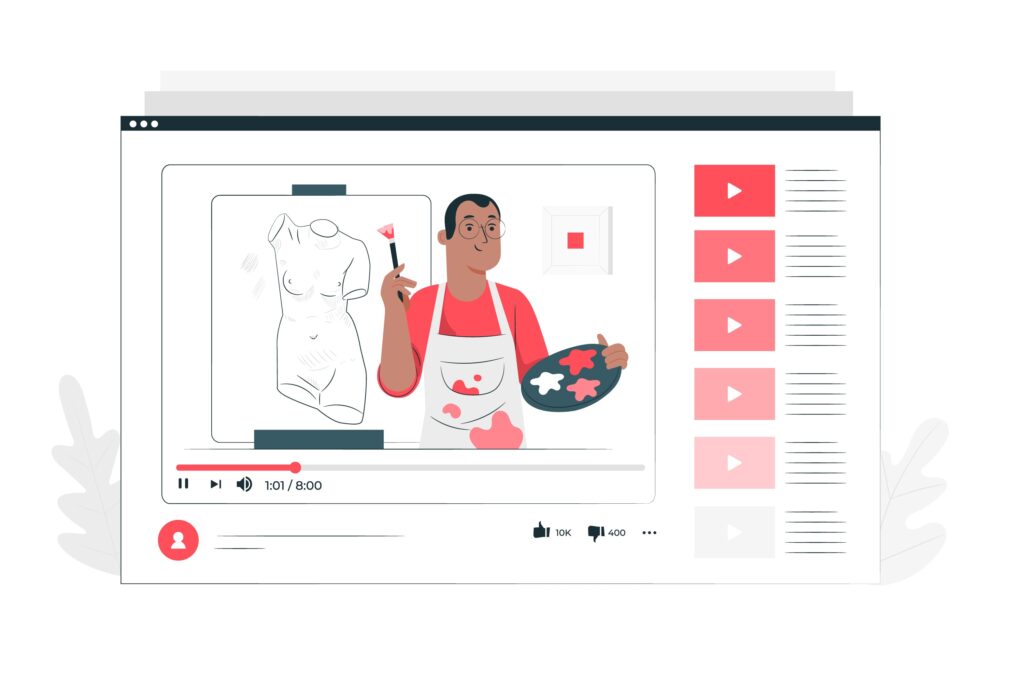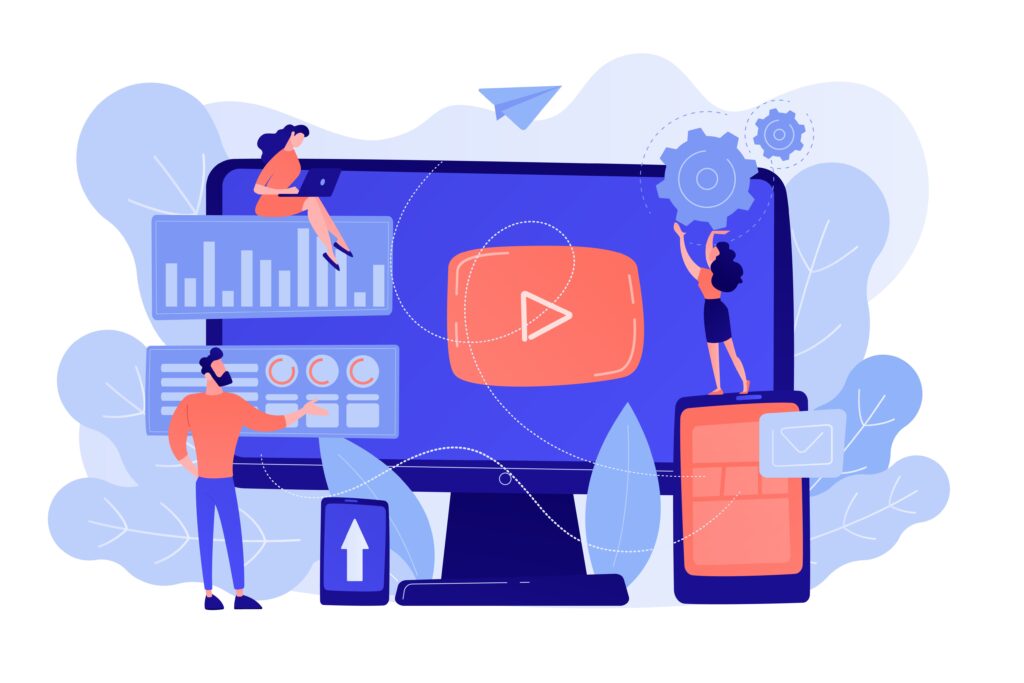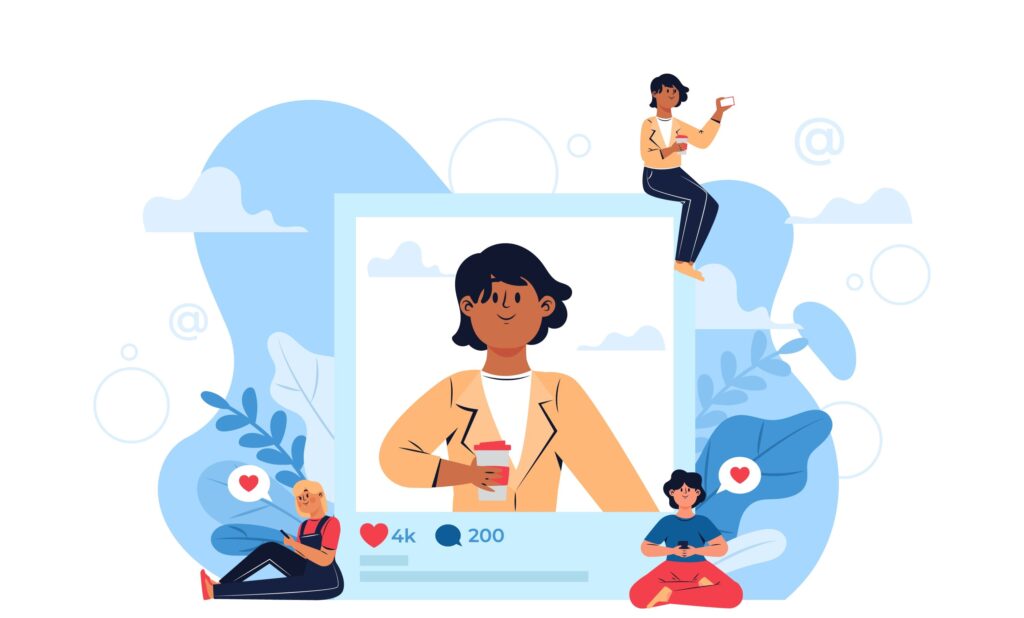Facebook marketing is using Facebook’s social media platform to promote a brand, product, or service. It involves creating and running Facebook ads, engaging with Facebook users through posts and messages, building a community of followers, and analyzing and optimizing campaign performance.
How To Start Your Facebook Marketing?
Facebook marketing has become increasingly popular over the years due to the large user base of the platform. As of the third quarter of 2021, Facebook has over 2.99 billion monthly active users, turning it into the largest social media network in the world.
This means that businesses have access to a massive audience that they can potentially reach through targeted advertising and engaging content.
1. Create A Facebook Page
To get started with Facebook marketing, a business needs to create a Facebook Page. This is a free public profile that can be used to represent the brand or business on the platform.
2. Insert All The Required Information There
The Page should include information about the business, such as its name, description, and contact details, as well as a profile picture and cover photo that reflect the brand’s identity through Facebook marketing.
3. Create And Share Your Content
Once the Page is set up, a business can start creating content to share with its followers. This can include posts about new products or services, promotions and offers, company news, and industry insights. Posts can be accompanied by images, videos, or links to external content.
4. Use The Ad For Better Reach
To increase the reach of its content, a business can use Facebook Ads. Facebook Ads allow businesses to target specific audiences based on factors such as age, gender, location, interests, and behavior.
Ads can be in the form of images, videos, carousel ads, or sponsored posts that appear in users’ news feeds.
Advantages Of Running Facebook Ads

One of the benefits of Facebook Ads is that they can be customized to fit the specific goals of a campaign.
1. Wide Reach
With over 2.99 billion monthly active users, Facebook provides access to a vast and diverse audience. Your businesses can reach potential customers based on demographics, interests, behaviors, and location, allowing for targeted advertising and maximizing the chances of reaching the right people.
For example, a business can choose to run an ad that directs users to its website, promotes a specific product or service, or encourages users to sign up for a newsletter or follow the brand on social media.
2. Precise Targeting Options
Facebook’s advertising platform provides a wide range of targeting options. Businesses can create custom audiences based on their existing customer data, retarget website visitors, or target lookalike audiences similar to their current customer base.
This level of targeting ensures that ads are shown to relevant individuals, increasing the likelihood of engagement and conversions.
3. Ad Format Variety
Facebook marketing offers a variety of different ad formats. That includes image ads, video, carousel, collection, and more. This flexibility allows businesses to choose the most suitable format for their marketing goals and effectively showcase their products or services to capture the attention of their target audience.
In addition to running ads, businesses can also engage with their Facebook followers through messages and comments. This can help to build a sense of community around the brand and foster relationships with customers.
4. Ad Performance Tracking And Optimization
Facebook provides robust analytics and reporting tools, allowing businesses to track the performance of their ads in real time.
Advertisers can monitor key metrics such as reach, engagement, clicks, conversions, and more. This data helps businesses understand the effectiveness of their campaigns and make data-driven decisions to optimize ad performance.
5. Remarketing Opportunities
Facebook’s remarketing capabilities enable businesses to re-engage with website visitors or individuals who have interacted with their brand on Facebook or Instagram. By targeting these warm leads, businesses can remind potential customers about their offerings and encourage them.
Responding to comments and messages in a timely and helpful manner can also help to build trust and credibility with followers.
How To Track The Performances Of Facebook Marketing?
To track the performance of their Facebook marketing efforts, businesses can use Facebook Insights. This tool provides information about the reach and engagement of posts, as well as demographic data about the brand’s followers.
By analyzing this data, businesses can identify which types of content are resonating with their audience and adjust their strategy accordingly.
Another way to optimize Facebook marketing is through split testing. This involves creating multiple versions of an ad or post and testing them against each other to see which one performs best.
Split testing can help businesses to identify the most effective messaging, visuals, and targeting strategies for their campaigns.
In Summary
Facebook marketing is the use of Facebook’s social media platform to promote a brand, product, or service. It involves creating and running Facebook ads, engaging with Facebook users through posts and messages, building a community of followers, and analyzing and optimizing campaign performance.
With over 2.99 billion monthly users, Facebook provides businesses with a massive audience that they can potentially reach through targeted advertising and engaging content.
By using tools like Facebook Ads, Facebook Insights, and split testing, businesses can optimize their Facebook marketing efforts and achieve their marketing goals.




